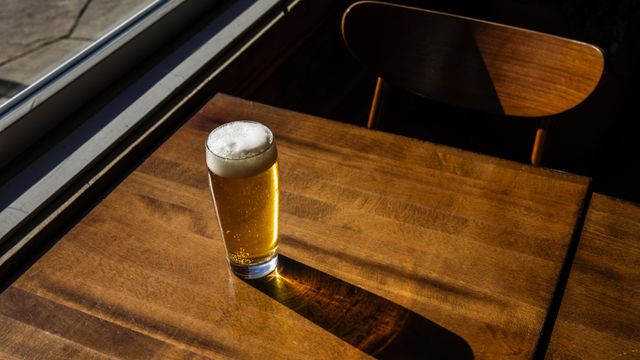Bars could close or raise prices if forced to make kitchen updates required by law
The North Carolina General Assembly is working on changing a new law that was just passed involving food safety at bars.
The law requires bars to go through the same permitting and health inspections that restaurants do. However, bars say some of those changes are too expensive or impossible to make.
Before we get any further, let’s clear up two things:
1. "Private clubs" that serve food have not been subject to health inspections from county health departments since a 2013 law was passed in North Carolina. More on that in a moment.
2. Bars 5 On Your Side spoke with are perfectly willing to be inspected and say they take great care in handling food safely in accordance with current health rules.
The concern is that the amendment to the definition of a bar in the sanitation statutes means bars will need the same kitchen facilities as a restaurant. And that is expensive, or impossible, for some to comply with.
5 On Your Side spoke with several bar owners in researching this story, including Leslie and Brendan Cox, the owners of The Beagle in historic downtown Pittsboro.
The Beagle operates differently than a lot of bars that serve food.
"We don’t operate like a restaurant; we understand the limitations of our space," said Brendan Cox.
Most of their food is made in an inspected commercial kitchen at OakLeaf in Carrboro, which the Coxes also own. The food is then transported to The Beagle, which is licensed as a private bar, following all established food safety rules.
"We’re not trying to flout rules or anything else, you know, we’re working within the rules we’re given," Brendan Cox told 5 On Your Side.
But on March 27, the rules are changing. The Beagle won’t be able to offer food this way anymore, and the Coxes fear it will put the bar out of business.
Legal definitions determine which kitchen must be inspected
Private bars have been exempt from health inspections since the North Carolina Regulatory Reform Act of 2013 was passed.
Before the act, "private clubs" were defined as a nonprofit organization that has members and only provides food to members or a member’s guest. They were exempt from health inspections.
The act expanded the definition of the term "private club," essentially allowing bars to use membership rules to become "private clubs" and therefore be exempt from health inspections.
That went on until 2022’s House Bill 768 removed the definition of "private bar," meaning all bars were exempt from inspections.
In 2023, House Bill 125 created food safety changes that meant bars that serve food would have the same permitting and inspection requirements as restaurants starting on March 27, 2024.
Updated law requires changes some bars simply don’t have room for
"I don’t think for one moment that anybody’s plan was to destroy small independent business in historic small towns in North Carolina," said Leslie Cox.
But the owners of The Beagle say that’s exactly what will happen to them. They say it’s impossible for them to comply with the new law given the space they have.
The Coxes say The Beagle is only about 1,100 square feet, and there’s not enough room for much of the required kitchen equipment.
They say they’d need:
- 4 sinks, one for each protein
- A three-compartment sink for washing dishes, even though they have and use a commercial dishwasher for that.
- The space between counters has to be 36", and they only have 34" of clearance.
There are many other physical changes that would need to be made to meet code that just won’t fit in this historic space. Even if they could, the cost could drive customers away.
"Prices would go from being able to get a small plate for $9 or $10, to being $18 or $19," Leslie Cox estimated.
Bars only got 180 days to make these overhauls. By March 27, they have to figure out what they need to change, submit a plan to county health officials, get the plan reviewed and approved, then have a contractor do the work.
"And then we come out to do a site visit to verify that the claims match what is required in the field," explained Jessica Sanders, Plan Review Section Chief in Wake County.
She said the number of bars in her jurisdiction going through the change is technically unknown, with just over five weeks until the deadline.
"But it looks like we sent information packets out in November to about 200 or more possible impacted establishments," Sanders said.
In Durham County, health officials told 5 On Your Side, they’ve made visits to a majority of the 12 facilities going through this change. One has already gotten their new permit to serve food.
The North Carolina Department of Health and Human Services says the state will help "establishments navigate this process with as little disruption as possible while ensuring the health and safety of North Carolinians."
The state recommends bar owners start with their local health department. "In most cases, county health departments have been able to work with bars impacted to minimize, reduce and eliminate costs," NCDHHS said. "After contacting your local health department, if there are additional concerns, please reach out to NCDHHS Food Protection Staff who are available to help with this transition process at NCBarQuestion@dhhs.nc.gov."
5 On Your Side isn’t the only one hearing about the challenges bars face with this change. We reached out to lawmakers to see if they’d heard the same things, and they had.
"The General Assembly is aware of it and has spoken to a number of affected businesses and will be taking a look at language and will make necessary changes to alleviate the burden that the change in law has created," Republican State Senator Tim Moffitt told 5 On Your Side.
Timing could be an issue, the law takes effect March 27, and lawmakers won’t be able to take action until after they are back in session in April.
It’s unclear at this point how bars will handle that time between the law taking effect and any changes being passed, but Cox hopes there can be a compromise that ensures food safety for patrons and also lets bars work with what they have.
"I care a lot about the food scene here being vibrant and diverse and different than everywhere else. I worry that if we’re not looking at the physical limitations of the small spaces and making accommodations, we’re going to end up with the same 12 restaurants in every town in North Carolina. And that’s not good for anybody," Brendan Cox said.











